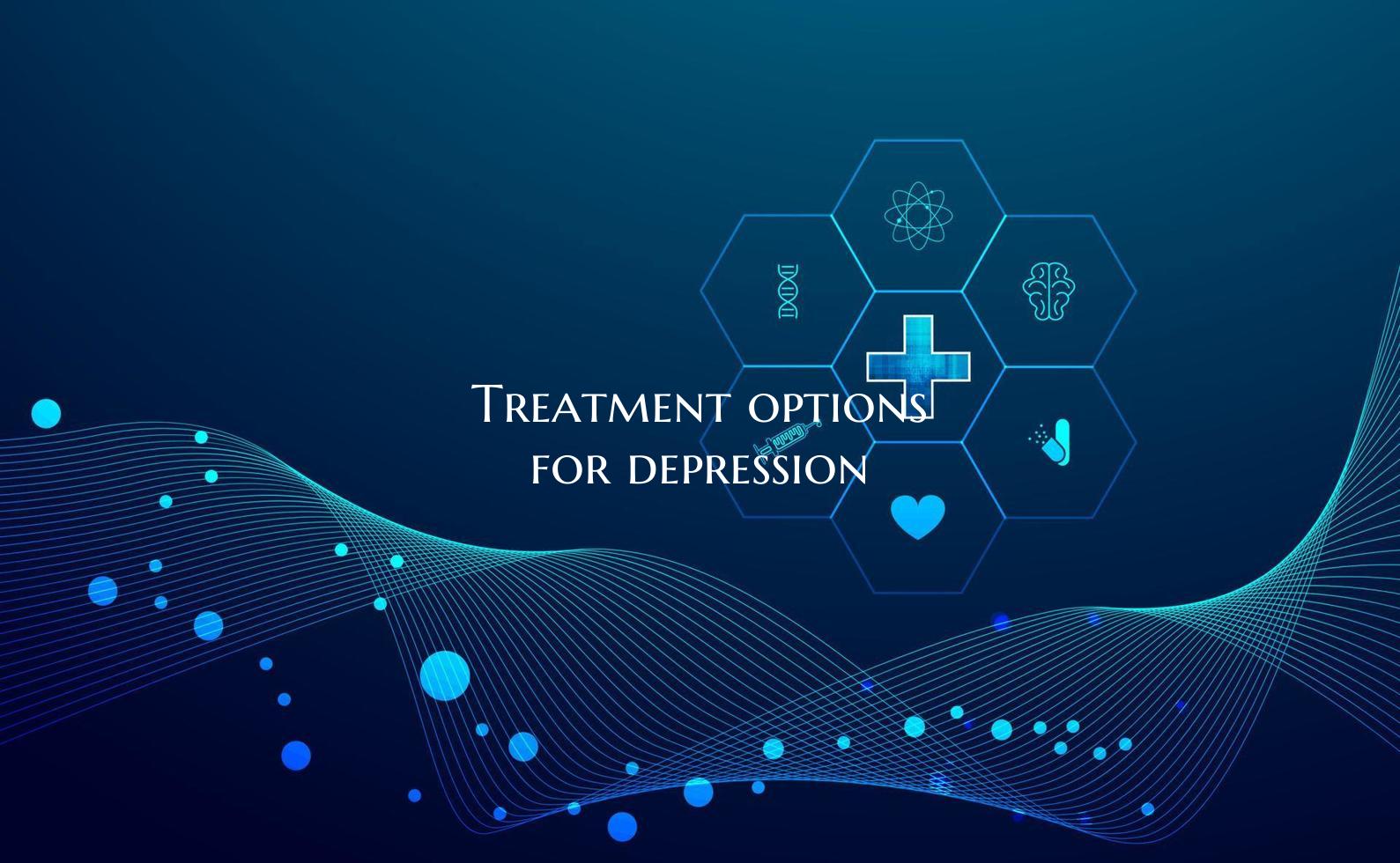
Treatment options for depression
Introduction: Depression is a mental health condition that affects millions of people worldwide. It can have a significant impact on an individual's daily life, relationships, and overall well-being. Fortunately, there are various treatment options available that can help manage and alleviate symptoms of depression. Understanding these treatment approaches and working with healthcare professionals can lead to improved mental health and a better quality of life.
1. Psychotherapy: Psychotherapy, also known as talk therapy, is a common and effective treatment for depression. Through sessions with a trained therapist, individuals can explore their thoughts, feelings, and behaviors in a safe and supportive environment. Different types of therapy, such as cognitive-behavioral therapy (CBT), interpersonal therapy, and psychodynamic therapy, can help individuals learn coping skills, gain insight into their emotions, and develop strategies to manage depression.
2. Medication: Antidepressant medications are often prescribed to help manage symptoms of depression. Selective serotonin reuptake inhibitors (SSRIs), serotonin and norepinephrine reuptake inhibitors (SNRIs), and other classes of antidepressants can help regulate brain chemicals that influence mood. It is essential for individuals to work closely with a healthcare provider to find the right medication and dosage that works best for them, as responses to antidepressants can vary.
3. Lifestyle Changes: In addition to therapy and medication, making positive lifestyle changes can also play a significant role in managing depression. Regular exercise, a healthy diet, sufficient sleep, and stress-reduction techniques like mindfulness and relaxation exercises can help improve mood and overall well-being. Engaging in activities that bring joy and fulfillment can also be beneficial in combating depressive symptoms.
4. Alternative Therapies: Complementary and alternative therapies can be considered as part of a holistic approach to treating depression. These may include acupuncture, yoga, meditation, and herbal supplements. While these approaches may not be a substitute for conventional treatments, some individuals find them helpful in reducing stress and promoting relaxation.
5. Support Groups: Connecting with others who are experiencing similar challenges can provide valuable support and encouragement for individuals dealing with depression. Support groups offer a safe space to share experiences, learn from others, and combat feelings of isolation. Peer support can be empowering and help individuals build resilience in their journey towards recovery.
Conclusion: Depression is a complex mental health condition that requires a multifaceted approach to treatment. By exploring different options such as psychotherapy, medication, lifestyle changes, alternative therapies, and support groups, individuals can find a personalized treatment plan that suits their needs. Seeking help from healthcare professionals, building a strong support system, and actively engaging in self-care practices are essential steps towards managing and overcoming depression. Remember, there is hope, and effective treatment options are available to support you on your path to recovery.